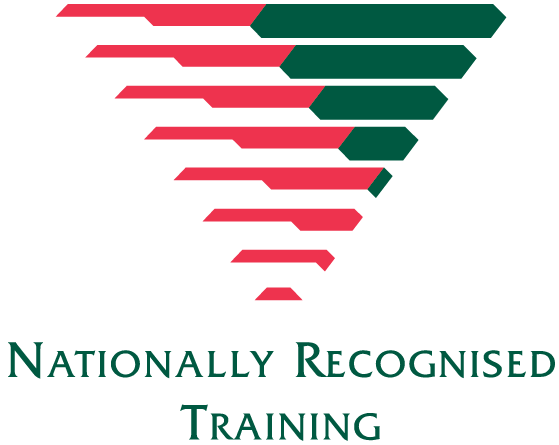Qualification Description
This qualification reflects the role of individuals in the community, home or residential care setting who work under supervision and delegation as a part of a multi-disciplinary team, following an individualised plan to provide person-centred support to people who may require support due to ageing, disability or some other reason.
These individuals take responsibility for their own outputs within the scope of their job role and delegation. Workers have a range of factual, technical and procedural knowledge, as well as some theoretical knowledge of the concepts and practices required to provide person-centred support.
The skills in this qualification must be applied in accordance with Commonwealth and State/Territory legislation, Australian standards and industry codes of practice.
No licensing, legislative, regulatory or certification requirements apply to this qualification at the time of publication.
Who is the course suitable for ?
The CHC33021 Certificate III in Individual Support is ideal for individuals who are compassionate and committed to making a positive impact in the lives of others. Whether you are starting your career in the healthcare sector or looking to formalise your skills, this course is perfect for those who want to work in aged care, disability support, or community care settings. It provides the essential knowledge and practical skills needed to deliver personalised care and support to individuals, fostering their independence and well-being. This qualification covers various aspects of individual support, including:
- Providing personal care and support
- Supporting people with disabilities
- Working with diverse groups of people
- Following safety procedures
- Working legally and ethically in the community services sector
Typically, individuals who may find this course suitable include:
- Those looking to enter the aged care or disability support workforce.
- Individuals wanting to gain the necessary skills and knowledge to assist people in maintaining their independence and quality of life.
- People seeking a pathway for further education and specialization in areas such as aged care, disability support, or home and community care.
Course Duration
- 12 months
All students are to engage in at least 10 hours of supported self-paced learning each week during the course. Supported self-paced learning is to be undertaken by the students outside of the scheduled hours according to the students’ individual learning needs. However, to support the students AGAE will provide a self-study guide that links to self-paced learning activities to these scheduled timetables.
Mode of delivery
- Face to Face and / or Live Zoom Sessions
Training Location
- Victoria: GO2/1510 Pascoe Vale Road, Coolaroo Vic 3048
- Dandenong: Suit 4/106 Foster Street, Dandenong Vic 3175
- Frankston: Ebdale Community Hub, 20 Ebdale St, Frankston VIC 3199
- South Australia: 225 South Rd Mile End SA 5031
Work Placement
To achieve this qualification, the students must have completed at least 120 hours of work as detailed in the Assessment Requirements of the units of competency.
Course Structure
To be awarded the nationally accredited certificate the CHC33021 – Certificate III in Individual Support, a student must successfully complete a total of 15 units comprising of 9 core units and 6 elective units. Student will be awarded an Ageing, and Disability specialisation.
| Unit Code | Unit Name | Core / Elective |
|---|---|---|
| CHCCCS031 | Provide individualised support | Core |
| CHCCCS038 | Facilitate the empowerment of people receiving support | Core |
| CHCCCS040 | Support independence and wellbeing | Core |
| CHCCCS041 | Recognise healthy body systems | Core |
| CHCCOM005 | Communicate and work in health or community services | Core |
| CHCDIV001 | Work with diverse people | Core |
| CHCLEG001 | Work legally and ethically | Core |
| HLTINF006 | Apply basic principles and practices of infection prevention and control | Core |
| HLTWHS002 | Follow safe work practices for direct client care | Core |
| CHCAGE011 | Provide support to people living with dementia | Elective |
| CHCAGE013 | Work effectively in aged care | Elective |
| CHCPAL003 | Deliver care services using a palliative approach | Elective |
| CHCDIS011 | Contribute to ongoing skills development using a strengths-based approach | Elective |
| CHCDIS012 | Support community participation and social inclusion | Elective |
| CHCDIS020 | Work effectively in disability support | Elective |
What resources are used to deliver the training ?
Student Handbook
A comprehensive Student Handbook will be provided to each student. This document outlines the course structure, objectives, key concepts, and guidelines, serving as a reference throughout the program. It also includes essential information on safety protocols and best practices. The handbook contains:
- Key learning points and summaries for each unit
- Theoretical readings and additional resources to deepen understanding
This resource ensures students are well-equipped to navigate the course and apply their knowledge effectively.
Textbook
The Textbook for students studying the Certificate III in Individual Support provides essential information to help them navigate through the course content, practical tasks, and assessments. It contains in-depth explanations of key concepts and regulatory requirements. Students are required to purchase their own textbooks at their own expense. For detailed information on the required textbooks, purchasing process, and related details, please inquire during th enrolment process.
Presentation Slides
Presentation slides are used by the trainer during the course delivery to visually support key concepts and discussions. These slides summarise the main points from the Textbook, helping students follow along and engage with the material. They may include:
- Legal and Ethical Responsibilities
- Safe Work Practices and Infection Control
- Providing Individualised Support
- Manual Handling and Assistive Technology
Practical Equipment & Tools
During practical sessions, students will use relevant equipment and tools to demonstrate safe work practices. This includes:
- Assistive Equipment: Includes trolleys, hoists, manual handling aids, and other devices to support safe client care and movement
- Personal Protective Equipment (PPE): Essential for various tasks, such as gloves, safety shoes, aprons, and back support belts, to ensure safety and hygiene in care settings.
- Simulated Workplace Scenarios: Realistic group exercises and demonstrations to provide hands-on practice in delivering individual support and applying learned skills in a safe environment.
These tools and exercises help students develop practical skills and reinforce safe working practices.
Risk Assessment Templates
Students will be provided with templates to conduct risk assessments. These templates guide learners in systematically evaluating hazards, assessing risks, and developing control measures for a variety of work-related situations. They are an essential resource for both individual and group activities, ensuring a structured approach to safety and risk management.
Assessment Tools
Assessment tools will include:
- Knowledge questionnaires to assess understanding of safety regulations, risk controls, and relevant workplace procedures
- Practical assessment checklists to evaluate students’ ability to apply safety protocols and risk control measures during simulated workplace tasks
- A workplace project template to guide students through conducting a risk assessment and reporting findings
These tools ensure that students are assessed on both their theoretical knowledge and practical application of safety practices.
Assessment Arrangements
- Assessments are designed to allow the students to exhibit competencies in the unit(s) of competency.
- Assessment’s methods can include practical tasks, project, written responses, role play, supervisors report, case studies, etc.
- Information about assessment requirements will give out in the first class and explained clearly by the trainer/assessor.
- Students are not graded but deemed “Competent” or “Not Yet Competent”.
- Students can appeal an assessment outcome.
Student Support
AGAE offers a range of support services to meet everyone’s needs. Please contact AGAE directly for assistance with your requirements.
What can I do once I have completed my qualification ?
The CHC33021 Certificate III in Support Work is designed to provide foundational skills in supporting individuals, particularly in areas such as disability, mental health, or community services. With this qualification, you can pursue a variety of career and study pathways within the community services sector.
Career Pathways
Upon completing the CHC33021 Certificate III in Individual Support, you will be equipped to work in a variety of roles within the aged care, disability, and community care sectors. Possible career pathways include becoming a personal care assistant, disability support worker, or home care aide. This qualification also provides a strong foundation for further studies, enabling you to advance your career in the healthcare and community services industries.
Possible job roles and employment opportunities on completion of this course may include:
- Personal Care Worker
- Disability Support Worker
- Aged Care Worker
- Community Support Worker
- Home Care Assistant
Education Pathways
After completing the CHC33021 Certificate III in Individual Support, you can continue your education and further develop your career in the community services and support sector. You may wish to progress completing:
- CHC43121 Certificate IV in Disability
- CHC43015 Certificate IV in Ageing Support
- CHC52021 Diploma of Community Services
AGAE does NOT guarantee any;
- Licensing outcome
- Employment outcome
- Successful completion of this course
Are there any prerequisites or entry requirements?
There are no entry requirements for this qualification.
The RTO has the following admission requirements:
- Students must be 18 years of age.
- AGAE requires all enrolment and payment details to be completed, includes USI number, prior to attending.
- Basic computer / IT skills.
- All applicants are required to participate in a pre-course interview prior to enrolment to evaluate their eligibility for the course.
- Students must undertake Language, Literacy and Numeracy test prior to enrolment. To gain entry into this course, student must have been determined as having the appropriate LLN capability.
- This program has been designed to be delivered through classroom-based delivery and students must have the ability to attend the scheduled sessions as per the timetable and must have access to a computer and the internet to complete self-study work. Students are to be informed of the timetable on enrolment and must maintain the required student contact hours.
- Students must be prepared to follow industry dress code standards for the work placement component of the course.
- This course has no entry requirements, however, prior to work placement, students will be required to obtain a Working with Children’s Check, National Police Check, NDIS Check, First Aid training and Manual Handling training at their own cost.
- Applicants must possess the mental, emotional, and physical resilience, as well as the willingness, to work with clients for extended hours on a daily basis.
- Applicants must identify any issues including mental, emotional, and physical issues of relevance to this occupation and training at the time of registration.
South Australia:
All students who are seeking to access to training are required to participate in the Upfront Assessment of Need process.
For more details about the UAN assessment visit https://providers.skills.sa.gov.au/Deliver/Upfront-Assessment-of-Need
- Individuals who are unwilling to participate fully in all aspects of the UAN process may instead choose to undertake training through fee for service arrangements.
- Suitability to ensure there is a good fit between the individual and the qualification of choice support requirements to ensure early identification and planning for individual learning, personal or complex needs.
- Literacy and numeracy to ensure wherever possible the individual can, if otherwise suitable, undertake a vocational qualification with additional foundation skills training OR to provide a clear evidence base of need for accessing a foundation skills qualification.
The requirement to provide a Unique Student identifier (USI)
All students are required to obtain a Unique Identifier (USI) prior to enrolment or provide evidence if exemption from obtaining a USI. A student can obtain a USI by visiting the following website to create a USI number:
If a student has already previously obtained a USI number but does not know it, they can go to the website to obtain their USI:
Student can also sign a USI consent form to allow AGAE to search or create a USI number on their behalf. AGAE will not issue an AQF qualification if the student fails to adhere to this requirement.
Skills Recognition
Under the Australian Qualification Framework (AQF), AGAE accepts and provides Credit and Recognition of Prior Learning (RPL) to learners for units of competency and/or modules (unless licensing or regulatory requirements prevent this) where these are evidenced by:
- AQF certification documentation issued by any other RTO or AQF authorised issuing organisation, or
- Authenticated VET transcripts issued by the Registrar
Obtaining your certificate or Statement of Attainment after successfully completing your course
- AGAE will issue a certificate within 30 calendar days of successful completion of the course, provided all requirements are met, fees are fully paid, and the USI (Unique Student Identifier) has been supplied.
- For students who partially complete the course successfully, a Statement of Attainment will be issued, provided that all fees are fully paid, and the USI has been supplied.
Fees:
South Australia Funded Student:
$472.50 ‘Participant Eligibility Criteria apply’ for to be eligible for South Australia Funded Student fees. *Supported by the Government of South Australia
You can check your eligibility at:
- Must be 18 years and above and not enrolled at school
- An Australian or New Zealand Citizen (Funded and Non-Funded Course) or
- A permanent Australian Resident or
- An eligible visa holder (Funded and Non-Funded Course) for more details on eligibility for funding courses visit:
https://providers.skills.sa.gov.au/Deliver/Student-eligibility-for-subsidised-training
Victoria Funded Student:
$100 ‘Participant Eligibility Criteria apply’ for to be eligible for Victoria Funded Student fees. *Supported by the Government of Skills Victoria.
Other States:
The cost for the full course for non-funded students is $2,900. This includes all tuition materials, administration fees, and training materials to complete the course. Students will be required to pay a deposit of $500 at the time of enrolment. Students/candidates can then either pay the balance in full upon commencement of the course or use the payment plan option available, which consists of five monthly instalments of $480.
AGAE does not take more than $1,500 as part of monthly instalment at any one time.
Cooling off period
Our refund policy is included in the agreement that you are required to sign to indicate acceptance of the offer of enrolment and all the terms and conditions specified. All self-funded course fees include a non-refundable deposit as outlined on the Course Outline and Student Agreement, which must be paid to secure a student’s place in the course.
The deposit is non-refundable except in the instance where AGAE is required to cancel a course due to insufficient numbers or for other unforeseen circumstances.
Students who withdraw from a course and wish to seek a refund or have the amount they owe on their fees reduced must apply to AGAE in writing, outlining the details and reason for their request.
Students who have not completed a withdrawal form are not eligible for consideration of a refund or reduction in fees. Eligibility for a refund will be assessed based on the services provided to the student and the costs incurred by AGAE in order to provide those services to the student. The outcome of the refund assessment will be provided by written notice to the student’s registered address outlining the decision and reasons for the decision along with any applicable refund or adjustment notice.
AGAE adheres to the cooling-off period as specified according to Australian Consumer Law. Further details can be accessed in the AGAE’s Student Handbook which is available on our website: https://www.agaeducation.com.au/
How to Enrol
To enrol in this course, please complete the Enrolment Form available on the website and email it to: admin@agaeducation.com.au
Or you can call us on:
- South Australia: (08) 7480 3318 / 0451 600 626
- All other states: (03) 8313 3249 / 0451 600 626
We will contact you to discuss your needs prior to finalising your enrolment.
‘Please ensure you read our Student Handbook along with this Course Outline’





